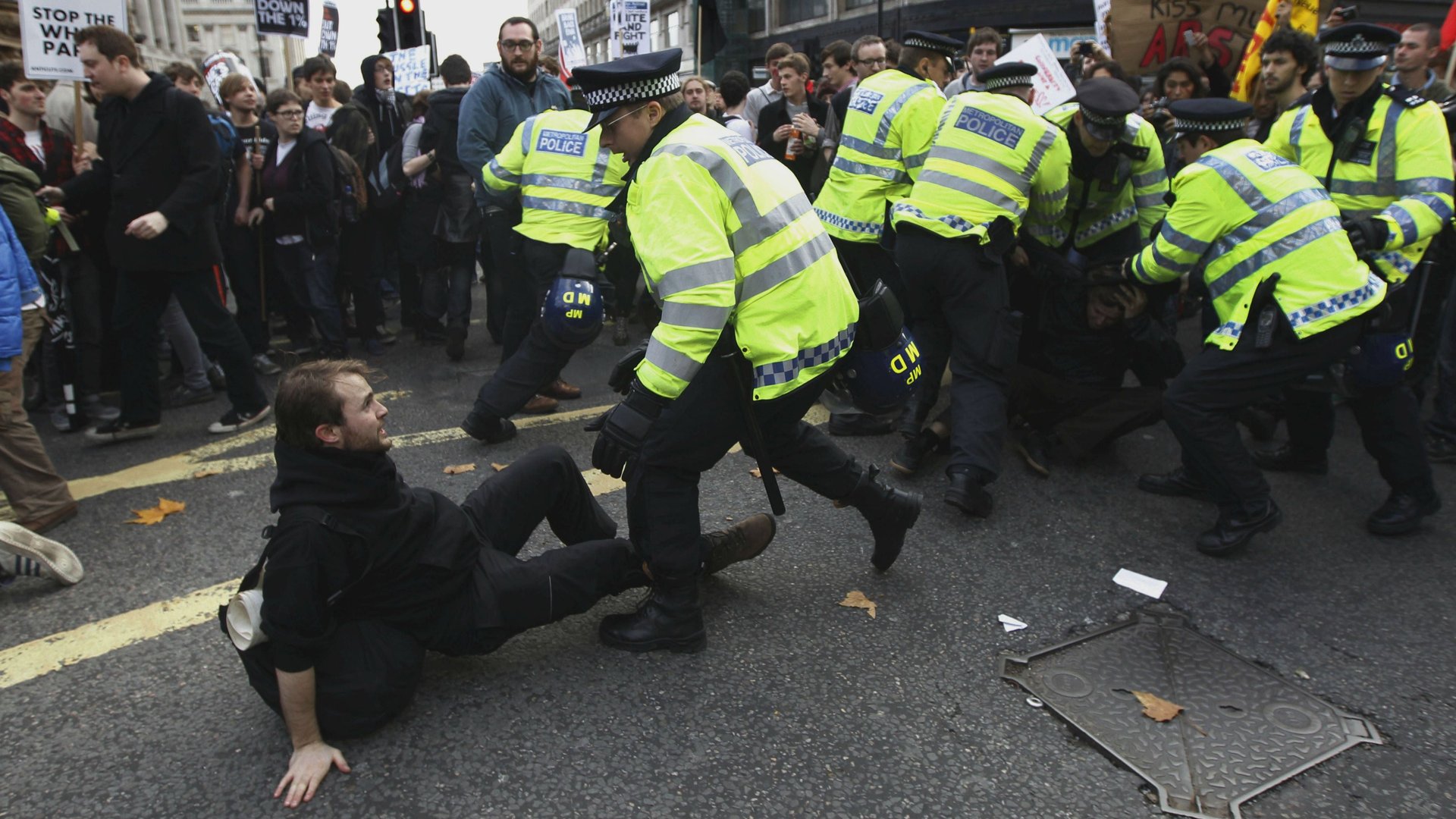London police officers will soon wear body cameras
London will equip its police officers with 20,000 body cameras by next March, the city’s administration has announced. The plan will “make the technology available to more officers in a single city than anywhere else in the world,” said mayor Boris Johnson in his administration’s announcement of the move.


London will equip its police officers with 20,000 body cameras by next March, the city’s administration has announced. The plan will “make the technology available to more officers in a single city than anywhere else in the world,” said mayor Boris Johnson in his administration’s announcement of the move.
The plan—which was originally to be implemented over 10 years and was recently put on fast track—follows successful testing done with 1,000 cameras over a few months, during which the devices generated over 6,000 video uploads per month.
Johnson, who launched the program on June 3, said the aim is to help police officials “fight crime and boost public confidence.” London is following the lead of many US cities, where cops have been equipped with body cameras in at least 41 of the largest cities. Britons are relatively used to the idea of being on camera—They already live with one CCTV camera for every 11 people in the UK.
The goal is to enhance public confidence in the police, and in particular its “Stop and Search” program, similar to American police departments’ infamous “Stop and Frisk” practices.
Currently, the video clips will only be stored for 30 days—with a projected volume of 60,000 videos a month. The London mayor’s office hasn’t responded to Quartz’s questions on whether the database will be publicly accessible. This post will be updated with any new information.
Though perhaps less frequently than their American counterparts, British police have also faced allegations of brutality, notably during student protests in 2010.
But knowing one is on camera in itself isn’t a sufficient deterrent against the misuse of police force—as the many episodes of police violence filmed on phone cameras on public streets show. As the technology researchers Danah Boyd and Alex Rosenblat have pointed out in The Atlantic, “technology doesn’t produce accountability.”
“Broader reforms to policing powers and the systems that hold them accountable are needed,” they say, “to move beyond the limited accountability that heightened cognitive awareness of surveillance can serve.”